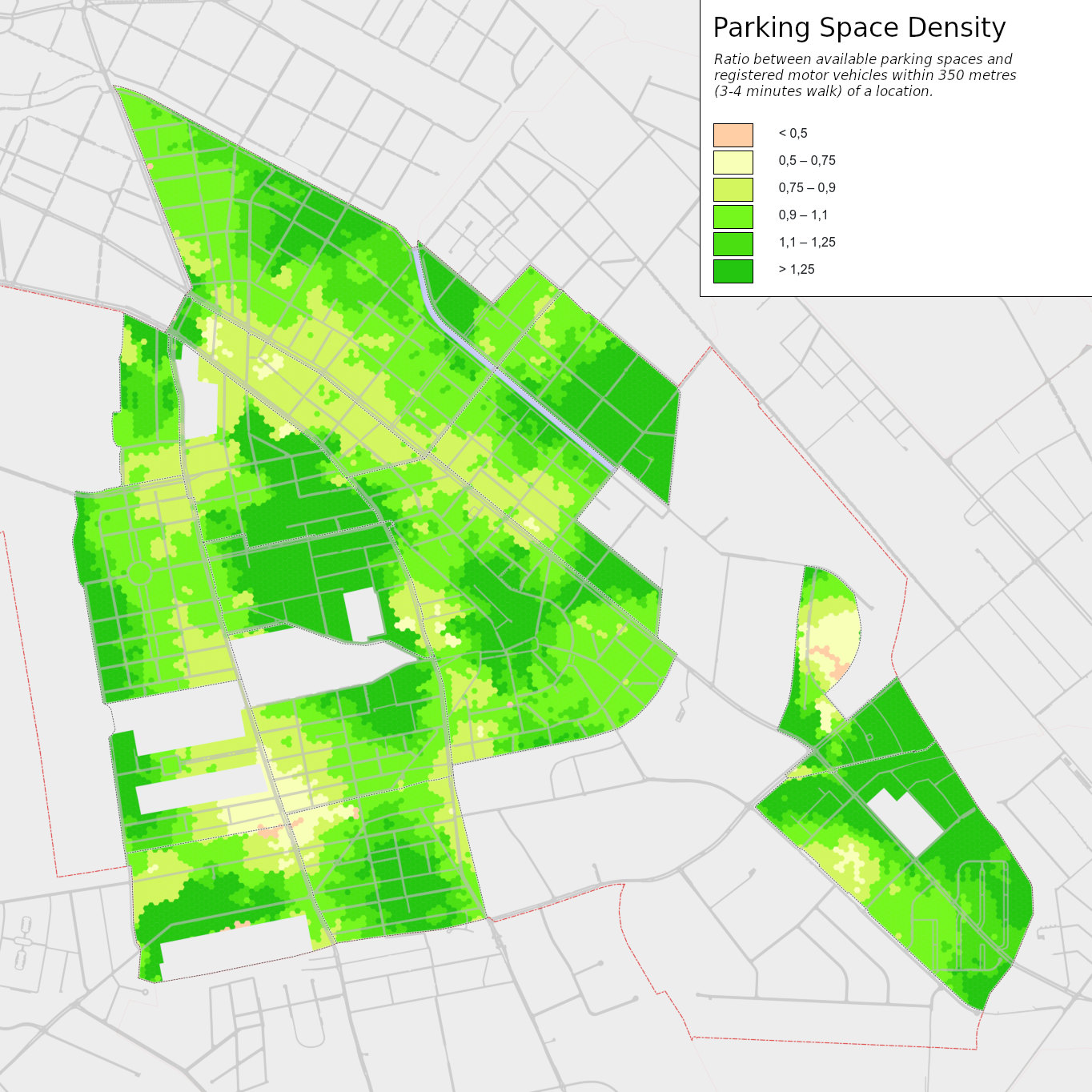09.03.2021-15.03.2021

Карта доступности парковок 1 | © Supaplex030 | map data © OpenStreetMap contributors
Картографические акции
- Мапперы ООН проведут 22-24 марта картографическую акцию совместно с EuYouth OSM и учениками португальских и румынских школ.
Картографирование
- Пользователь Supaplex030 проанализировал доступность парковочных мест в Нойкёльне (пригород Берлина).
- Саймон Пул показывает, что ошибки могут быть даже у крупных провайдеров геоданных.
- Бенджамин Херфорт продолжает серию постов «Как использовать Менеджер заданий HOT для мониторинга гуманитарного маппинга».
- Пользователь Paul The Archivist рассказывает, как он занимался 3D-маппингом британского города Хартфорд, расположенного к северу от Лондона.
- Предложения, ждущие комментариев:
ref:find_a_grave=: идентификатор на FindAGrave (сайт с информацией о местах погребения).
- Идёт голосование:
place_of_worship=holy_well: места, где католики отмечают дни святых (по 25 марта).emergency=lifeguard: места, где могут находиться спасатели (по 30 марта).
- Окрестности деревни, в которой была сделана стомиллионная правка, теперь размечены намного более подробно.
Сообщество
- Берт Араали жалуется на отвратительное поведение некоторых участников Discord-канала OSM World. Матеуш Конечны, один из модераторов этого канала, не нашёл ничего, заслуживающего столь громких эпитетов.
- Паскаль Найс показывает предварительные варианты новых фильтров для странички «Latest OpenStreetMap Edits per Tile».
Импорты
- Появилось предложение об импорте контуров зданий из норвежского официального набора данных.
- Абдулла Абдулрахман пишет о завершении импорта данных об административных границах в Саудовской Аравии.
События
- Продолжается приём заявок на выступления на конференции State of the Map 2021, последний срок — 4 апреля. В этом году конференция снова будет проходить онлайн.
Гуманитарный OSM
- Humanitarian OSM Team представила карту маппинг-проектов, помогающих борьбе с COVID-19.
- Кроме того, появилась интерактивная статья о работе HOT в 2020 году.
Карты
- Радиолюбители с удовольствием используют OSM в своих проектах, например, APRS-Map с позициями передатчиков APRS, Repeater Map с позициями радиолюбительских репитеров. А на OpenTopoMap есть слой с сеткой QTH-локатора.
Программы
- Роланд Ольбрихт объявил о первом посте в блоге Overpass, который написал не он сам. Антуан Риш разобрал задачу о подсчёте количества перекрёстков с круговым движением.
- 21 марта состоится релиз приложения Via Epona, в котором можно найти терруар, чтобы прокатиться по нему на велосипеде.
- Пользователь qeef продолжает работу над сайтом для совместного маппинга «Divide and map. Now.»
Программирование
- OSM снова будет участвовать в Google Summer of Code. Сейчас идёт подбор проектов и кураторов, с текущим списком можно ознакомиться здесь.
А вы знаете …
- … о палеоруслах? Недавно их обсуждали в списке рассылки. Изменения русла некоторых рек тщательно задокументированы, а у других их хорошо видно на спутниковых снимках.
- … о сервисе для сравнения карт CompareMaps.drona.ro?
Другие “гео” события
- Американский художник Эд Рушей сделал в 1960 годах серию фотографий бульвара Сансет. Stamen собрал эти снимки на интерактивной страничке.
- Сайт Myriahedral Projections показывает множество способов спроецировать поверхность Земли на плоскость.
- Мэтью Эрл привязал видео посадки марсохода Perseverance на спутниковые снимки с Mars Express Orbiter.
- В Google Maps снова появилась возможность редактирования.
Предстоящие события
Примечание: Если вы хотите видеть своё мероприятие здесь, добавьте его в календарь. Данные оттуда автоматически появятся в еженедельнике. Не забудьте указать город и страну.
Над этим выпуском работали: Climate_Ben, rogehm, SK53, TheSwavu, derFred, richter_fn.
